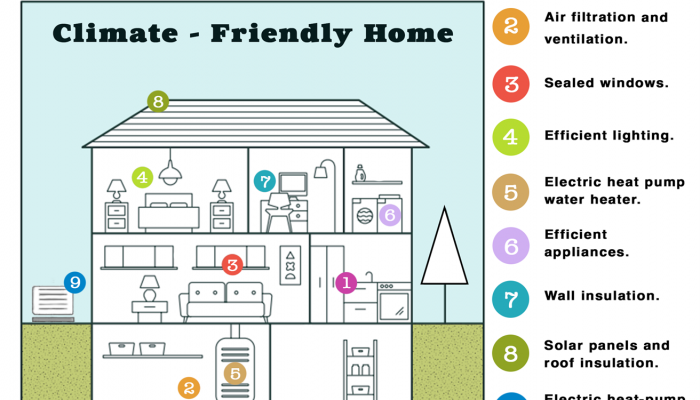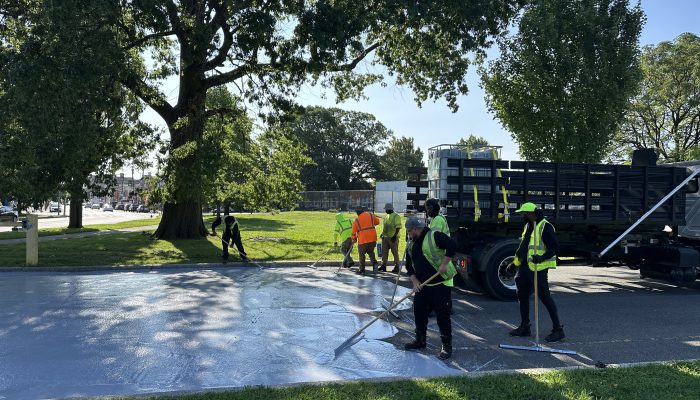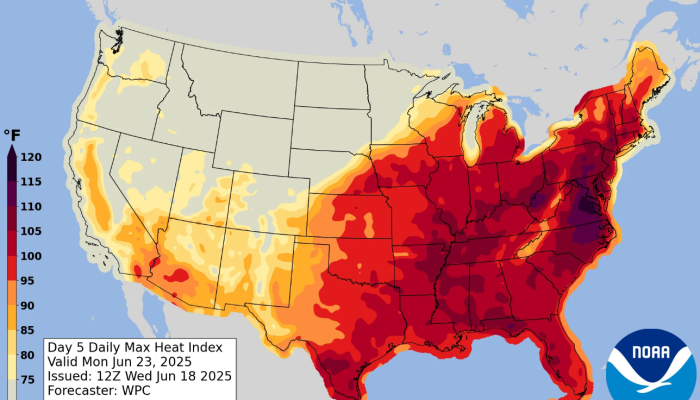Did you know that almost 70% of Philadelphia’s emissions come from how our buildings use energy? Making your home climate-friendly can help lower your energy bills, improve your home’s comfort, and reduce your impact on the environment. New federal funding from the Inflation Reduction Act (IRA) can help you pay for these upgrades!
Two types of tax credits can help you make your home more energy efficient, upgrade to energy efficient appliances, and transition to clean sources of energy.
- Energy Efficient Home Improvement Tax Credit: Claim up to $3,200/year on energy-saving renovations and efficient appliances.
- Get 30% back (up to $1,200/year) on energy-saving renovations including electric panel upgrades for new electric equipment, energy efficient exterior doors and windows, insulation and air-sealing materials, energy efficient skylights, energy efficient air conditioners, heating systems, and hot water boilers. A $150 tax credit per household is also available for a home energy audit.
- Get up to $2,000/year for installing efficient heat pump air conditioners and water heaters. Heat pump technology is extremely efficient, and heat pump air conditioners can provide both heating and cooling for your home. Learn more about heat pump technology.
- Credits are available for 10 years, starting Jan. 1, 2023 until the end of 2032. (Boiler credit ends in 2027.)
- Residential Clean Energy Tax Credit: For adopting clean energy technologies for your home.
- Get 30% back with no-cap, rollover credits on new household clean energy systems such as rooftop solar. The credit covers equipment and costs of installation. Interested in learning more? Reach out to Solarize Philly, a local program for purchasing or leasing rooftop solar for your home.
- Credits are available for 10 years, starting Jan. 1, 2022 until the end of 2032. Credit reduces to 26% in 2033, and 22% in 2034.
Want to learn more?
The U.S. Department of Energy has launched an Energy Savers Hub that provides an easy way to explore what tax credits are available for upgrades in all areas of the home. You can also check out the Hub’s FAQ page for answers to additional questions (e.g. what actually is a tax credit?), and stay tuned as additional benefits for income-qualified residents are expected to become available in late 2023.
Feeling overwhelmed and not sure where to start?
- Get a home energy audit and claim a $150 tax credit! Few of us can identify where our homes are wasting the most energy and money. If this is the case for you, a home energy assessment is an excellent place to start! IRA funds offer a 30% tax credit up to $150 on any professional home energy audit. PECO offers home energy assessments starting at $45. Visit the PECO website to schedule a visit or see if you qualify for a free assessment.
- Do you have appliances that you are ready to replace today? Use the information shared here to invest in better energy- and cost-saving alternatives and the tax credits that can help you!
- Have appliances and energy systems that you’re not ready to replace yet? Make a note of when you think they will reach end-of-life, and when you are ready to replace them, be aware of better alternatives and the tax credits you can take advantage of!
Did you already invest in home improvements?
Non-Business Energy Property Tax Credits from ENERGYSTAR apply retroactively for eligible purchases made prior to 2023, such as a 30% tax credit for rooftop solar systems placed in service by Dec. 31, 2019. These credits expire on Dec. 31, 2023.
Interested in clean transportation?
Tax credits are also available for purchasing new and used electric vehicles (EVs). You can receive up to $7,500 in tax credits on a new or used EV, on top of the thousands of dollars in annual savings on gas! There are also tax credits available for used EVs and qualifying cars purchased prior to 2023. Visit the Energy Savers Hub to learn more.




